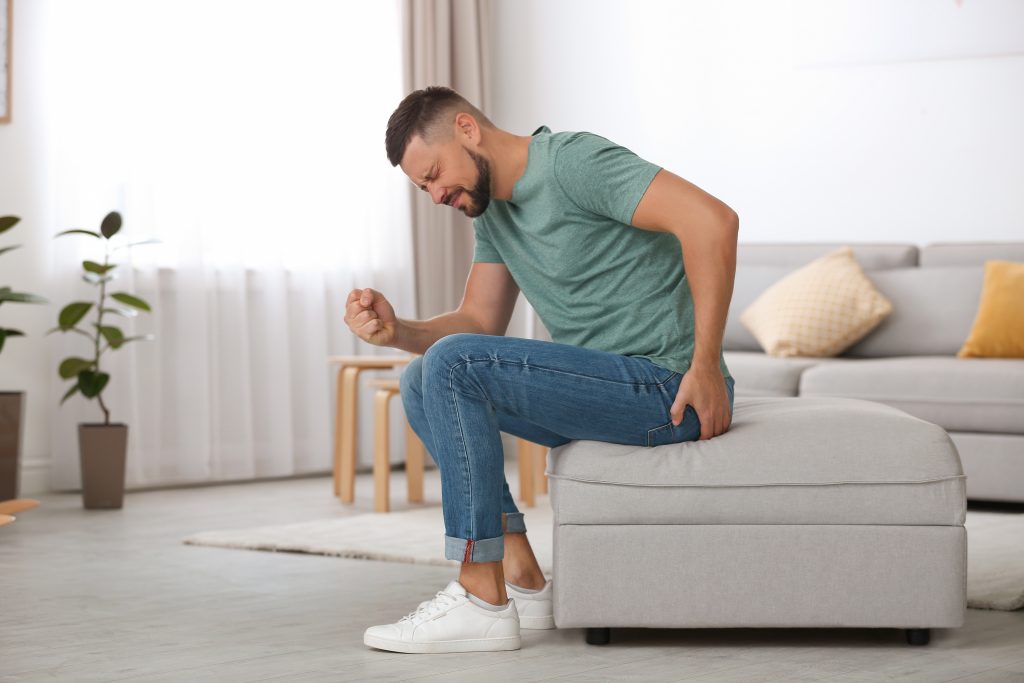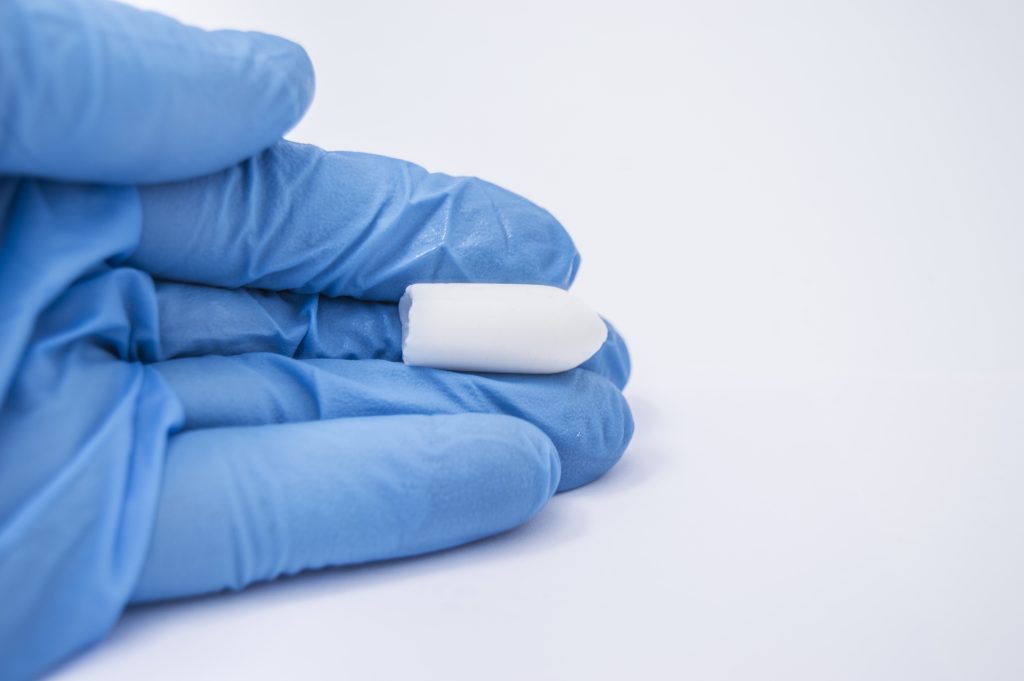May 24, 2022
How Long Do Hemorrhoids Last?
Hemorrhoids can be extremely difficult to deal with, especially when they cause pain and discomfort. When you develop hemorrhoids, you want them to go away as quickly as possible so you can experience relief from your symptoms.
Here’s how long it usually takes for hemorrhoids to go away and what you can do in the meantime to feel better.
What Are Hemorrhoids?
Hemorrhoids are swollen veins that develop inside the rectum or under the skin around your anus. They are like varicose veins.
Hemorrhoids are highly common. Anyone can develop them, though they tend to be more common in adults over 50. According to the National Institutes of Health, hemorrhoids affect an estimated one in 20 Americans.
Internal hemorrhoids don’t always cause symptoms, but they are usually triggered by bowel movements when they do. Common symptoms of hemorrhoids include:
- Pain or discomfort
- Itching
- Irritation
- Burning
- Lumps
- Swelling
- Bleeding
- Inflammation
What Causes Hemorrhoids?
Hemorrhoids occur when the veins around your anus become stretched due to excess pressure. Behaviors that can increase pressure on these veins include straining during bowel movements, eating a low-fiber diet, and lifting heavy objects. Certain health conditions may also cause hemorrhoids, including obesity, pregnancy, and constipation.
How Long Can Hemorrhoids Last?
Small hemorrhoids usually go away on their own within a few days. However, larger hemorrhoids may require treatment from your doctor in the form of surgery or another procedure. Larger hemorrhoids may last several days or weeks, depending on when your doctor can schedule and perform the procedure.
If you are pregnant and develop hemorrhoids, your symptoms may go away on their own or after you give birth.
Prevention and treatment are the best ways to ensure your hemorrhoids go away as quickly as possible. Treating hemorrhoids early on can prevent them from becoming more prominent and requiring a longer recovery period.
What Are Treatment Options for Hemorrhoids?
Hemorrhoids that cause mild pain and discomfort can often be treated using over-the-counter (OTC) hemorrhoid products. Creams, ointments, and pads are some of the many types of OTC hemorrhoid products available. These products are often effective at relieving symptoms like itching and pain. Your doctor may also prescribe medications that can relieve your hemorrhoid symptoms.
Hemorrhoids that are larger or more bothersome may be treated using surgery or one of several minimally invasive procedures. These treatments include:
 Surgical removal. Your doctor removes excess tissue that is causing bleeding and other symptoms. General or local anesthesia is usually used to reduce pain related to this procedure.
Surgical removal. Your doctor removes excess tissue that is causing bleeding and other symptoms. General or local anesthesia is usually used to reduce pain related to this procedure.- This treatment is used only for internal hemorrhoids and blocks blood flow to the hemorrhoid.
- Rubber band ligation. Your doctor places one or more tiny rubber bands around the hemorrhoid to cut off its blood supply. With rubber band ligation, your hemorrhoids will usually disappear within one week.
- Your doctor injects a chemical solution directly into the hemorrhoid to make it shrink and go away.
- Your doctor uses a device that emits heat, infrared light, or a laser to target the veins in your hemorrhoid. This method cuts off its blood supply and makes the hemorrhoid harden and shrink.
Any medical treatment, including the above remedies for hemorrhoids, come with risks and side effects. For instance, surgical treatments usually carry the risk of bleeding and infection. Your doctor can discuss the pros and cons of each of these treatments and help you choose the one that may work best for you.
How Can Hemorrhoids Be Treated at Home?
Your doctor may recommend treating your hemorrhoids at home if they are small and your symptoms are mild. Things you can do at home to treat hemorrhoids include changing your diet, soaking in a warm bath, and using OTC medicines.
At-home treatments for hemorrhoids include:
- Eating more foods that are high in fiber. Fruits, vegetables, beans, and whole grains are high in fiber. These foods can make your stool softer and your bowel movements more regular and comfortable. Eating a fiber-rich diet can help you avoid straining during bowel movements, which can aggravate hemorrhoid symptoms.
- Soaking in a warm bath for up to 15 minutes, three times a day. A warm bath can often relieve pain, swelling, and inflammation caused by hemorrhoids.
- Taking OTC pain relievers. Products like aspirin and ibuprofen can help you experience temporary relief from your hemorrhoid symptoms.
- Using topical OTC products. Hemorrhoid creams and ointments sold at your local pharmacy often contain witch hazel or other ingredients that can reduce your symptoms.
What’s the Best Way to Prevent Hemorrhoids?
If you don’t take steps to prevent hemorrhoids, they can come back after they’ve healed. Hemorrhoids can also stick around if you do not treat them properly.
Effective ways to prevent hemorrhoids include:
- Adding more high-fiber foods to your diet.

- Taking fiber supplements if you cannot get enough fiber in your diet.
- Drinking more water throughout the day, which promotes regular bowel movements.
- Exercising regularly to promote good blood flow and bowel function.
- Going to the restroom as soon as you feel the urge. This can prevent stool from drying out and causing constipation.
- Avoiding straining during bowel movements. This can put excess pressure on the veins in your anus.
- Avoiding sitting for long periods.
- Losing excess weight.
- Taking stool softeners, if recommended by your doctor.
When It’s Time to See a Doctor
Make an appointment with your doctor immediately if your hemorrhoid symptoms worsen or if your hemorrhoids do not go away within one week. You should also see your doctor if you experience bleeding from the anus. Bleeding could indicate the presence of another serious health condition, such as cancer. Your doctor can perform the necessary screenings to confirm and rule out certain conditions.
Treating Hemorrhoids with Healthcare Associates of Texas
Visit our website today to request an appointmentif you think you may have hemorrhoids. Our board-certified physicians can perform an examination and talk to you in greater detail about how long hemorrhoids last. We will also discuss ways to treat them at home and available treatments to reduce your symptoms and help you find relief.
DISCLAIMER
The information featured in this site is general in nature. The site provides health information designed to complement your personal health management. It does not provide medical advice or health services and is not meant to replace professional advice or imply coverage of specific clinical services or products. The inclusion of links to other web sites does not imply any endorsement of the material on such websites.